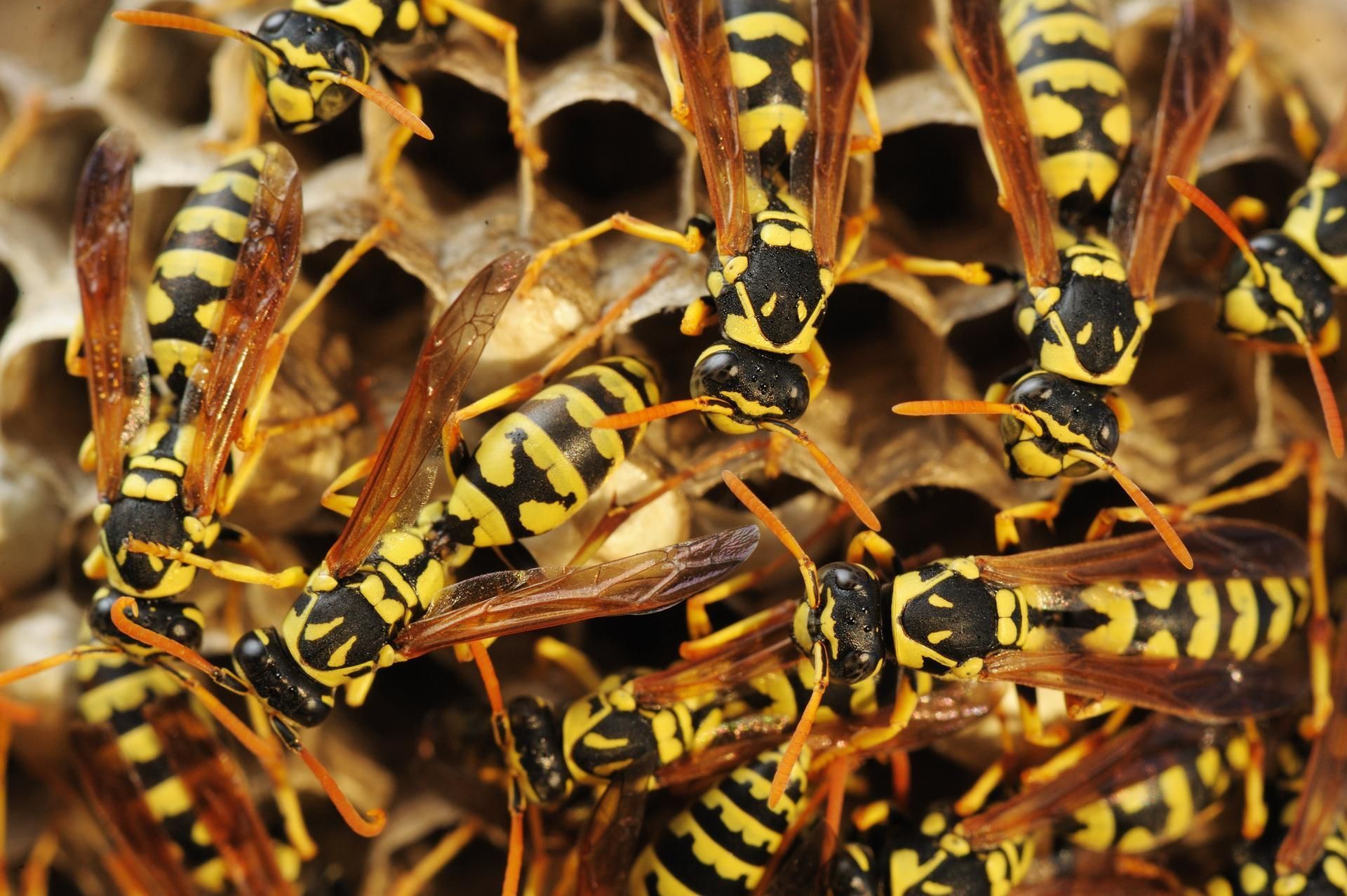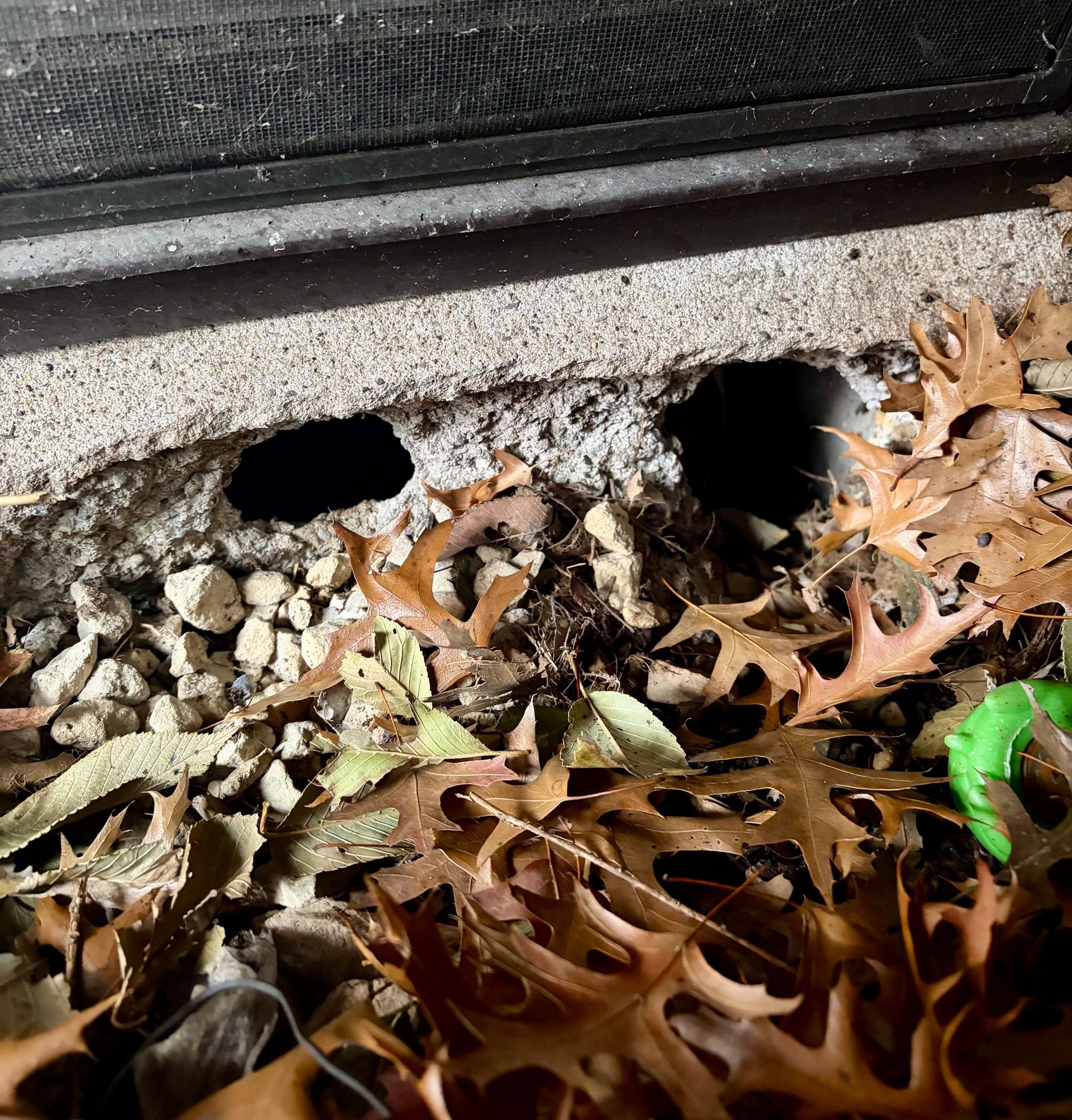Hornets, Wasps, and Your Home: Questions and Answers

The more you understand about hornets and wasps, from their key differences and similarities to how you can reduce their numbers on your property, the more easily you can keep you and your loved ones safe against these potentially aggressive pests. Take a look at some helpful questions and answers on the subject.
How Can You Tell Hornets and Wasps Apart?
You may have no trouble telling hornets and wasps apart from bees. However, these two creatures may resemble each other closely from a reasonable distance. In fact, the 22 recognized species of hornets technically count as a type of wasp, a term that encompasses over 100,000 insect species in all.While both wasps and hornets have striped bodies, wasps' stripes feature the black-and-yellow format you see in bees. By contrast, hornets' bodies can appear blue, red, or black, either in a striped arrangement or as solid coloring. The body of a hornet may also look rounder or more bulbous than that of a wasp.
Where Do These Pests Commonly Build Their Homes?
If you can't tell whether you have wasps or hornets from their appearance, look at their nests. Wasps tend to their build their nests in overhanging areas, while hornets often attach their nests to shrubs and bushes. Wasp nests also extend about a few inches in diameter as opposed to the basketball-sized nests hornets can build.Some wasp species make their homes in the ground instead of the air. For instance, the species known as the Eastern yellowjacket will build entire colonies that lie hidden just beneath the soil. If you manage to step on or otherwise disturb the colony during outdoor summer activities, you could trigger a swarm of defending wasps.
What Dangers Can Hornets and Wasps Pose?
For many people, the threat of a painful sting from a hornet or wasp provides reason enough to take action against these pests, which can grow aggressive if they feel endangered. However, hornets and wasps can do more than just cause temporary pain, especially in individuals who have special sensitivities to their stings.If you have an allergy to the chemicals in a hornet or wasp's stinger, you could suffer a severe or even fatal reaction to a single sting. The chemicals released during a sting also include pheromones that may attract an entire colony of angry wasps or hornets, posing a real danger to allergic and non-allergic residents alike.
How Do Pest Control Experts Deal With Infestations?
Because of the potential dangers posed by hornets and wasps, you shouldn't try to kill these creatures or remove their nests on your own. A skilled, experienced pest control team can handle these and other stinging insects safely and effectively. These experts will start by examining your property to locate all nests.Once the pest control technicians have identified all areas where hornets or wasps may dwell, they can use poisons to kill the colonies. Spray treatment techniques can kill the populations in overhanging nests, while powders can work well to eliminate ground wasps. The time of day can make a big difference in effective wasp and hornet treatment. Your pest control team will probably want to spray or dust in the early morning hours. This timing helps to ensure that the treatment hits the pests during their dormant hours, when most or all of them inhabit the nest.
Bear in mind that you may not need to eliminate every wasp or hornet nest on your property. If you discover a nest well away from your home or yard, where people probably won't disturb it, you might as well leave it alone. The colony will either abandon the nest or die off on its own by autumn.
What Can You Do to Prevent Future Infestations?
Although wasps and hornets don't reuse abandoned nests, they will happily return every summer to build new ones unless you adopt some smart strategies to discourage them. For starters, make a habit of cleaning up or removing any leftover food or garbage that might attract these pests to your home.Since wasps and hornets gravitate toward sweet odors and perfumes, you can use this tendency against them by setting out traps. These traps will attract the pests by emanating a sweet scent, detaining and killing those that enter. Your pest control expert may also recommend decoys that draw the pests away from your property.
If wasps or hornets have taken up residence on your Saint Paul or Minneapolis property, let Paffy's Pest Control come to your rescue. We can safely eliminate wasp or hornet populations while providing you with ongoing preventative inspections and guidance. Contact us today to schedule our services.















